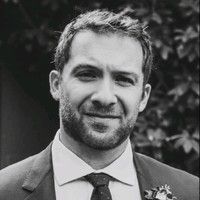Thurday’s sixth Democratic debate was the smallest one yet: Only seven candidates qualified for the debate, meaning moderators were able to go much more in-depth with some of the top-tier candidates in the 2020 Democratic primary election, including Bernie Sanders, Joe Biden, Elizabeth Warren, and Pete Buttigieg. If you missed the debate live, you can watch it in its entirety above.
PBS NewsHour and Politico co-hosted the final debate of 2019, which took place at Loyola Marymount University in Los Angeles. The December debate almost didn’t happen: A labor dispute between the university’s food provider, Sodexo, and its workers prompted several candidates to nearly boycott the debate. The dispute was ultimately resolved, and the candidates clashed over impeachment, health care, and the economy.
Here’s everything you need to know about the sixth Democratic debate:
How to watch the December Democratic debate online
You can watch the debate in the player embedded above. The debate is also accessible on PBS, Politico, and CNN. You can also watch on CNN and PBS’ apps on platforms like iPhone, Android, Apple TV, Chromecast, Amazon Fire, and Roku, along with PBS NewsHour and Politico’s Facebook, YouTube, and Twitter accounts.
Which candidates qualified for the debate?
The Democratic National Committee (DNC) significantly ramped up its qualification criteria compared to the last time around. In order to make the debate stage, the Democratic candidates needed to have at least 200,000 unique donors, a minimum of 800 donors in 20 states, and either 4% support in four recognized national or early-state polls, or 6% support in two early-state polls.
Here’s who made the cut this time around:
- Former Vice President Joe Biden
- Sen. Bernie Sanders (I-Vermont)
- Sen. Elizabeth Warren (D-Massachusetts)
- Mayor Pete Buttigieg of South Bend, Indiana
- Sen. Amy Klobuchar (D-Minnesota)
- Entrepreneur Andrew Yang
- Businessman Tom Steyer
Notably absent are Sen. Corey Booker (D-New Jersey) and former Housing and Urban Development Secretary Julian Castro, who did not meet the qualification threshold. Former New York City Mayor Michael Bloomberg also didn’t qualify because he’s not fundraising for his campaign and instead is relying on his massive fortune to self-fund his campaign.
Who moderated the debate?
The debate was moderated by PBS NewsHour’s anchor Judy Woodruff, senior national correspondent Amna Nawaz, and White House correspondent Yamiche Alcindor, along with Politico chief political correspondent Tim Alberta.
Who won the December Democratic debate?
It’s always tough to determine a winner or loser during the debates, but the candidates — particularly Amy Klobuchar — did pile on Pete Buttigieg, attacking his policies, his lack of national experience, and a recent high-dollar fundraiser in a California “wine cave.” Buttigieg seemed taken aback by the criticism from his peers, floundering during his opportunities to defend himself.
Absent from the debate was much discussion about tech policy, which has been a big focus for a few candidates: Yang has built his campaign on the issue of workforce automation. Both Warren and Sanders have called for breaking up Big Tech, and both have also come up with their own separate plans for bringing afifordable broadband to underserved areas of the country.
When is the next Democratic debate?
You won’t have to wait long for the next debate: CNN and the Des Moines Register will host a debate in Des Moines, Iowa, on Tuesday, January 14. After that, there’s a debate in New Hampshire on February 7, one in Las Vegas on February 19, and another in Charleston, South Carolina, on February 25.
The DNC released its qualification requirements for the January debate on Friday, and there’s an even higher bar than Thursday’s debate: Candidates need to get 5% support in at least four national or early-state polls, or at least 7% in two early-state polls. Candidates will also need at least 225,000 donors, with at least 1,000 donors in 20 states. The cutoff for meeting these requirements in January 10, 2020.



